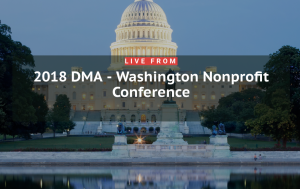Public and donor pressure to keep administrative and fundraising expenses low might be leading nonprofit organizations to underreport such costs, according to a new study by the Center on Philanthropy at Indiana University and the Center on Nonprofits and Philanthropy at the Urban Institute in Washington, D.C.
The Nonprofit Fundraising and Administrative Cost project found that 37 percent of nonprofits with private contributions of $50,000 or more in the Year 2000 reported no fundraising or special event costs. This included more than 18 percent of organizations raising $5 million or more that reported no such costs. The study’s authors said that they believe it is implausible that so many nonprofits would have zero fundraising costs since organizations almost always must spend money to raise money.
The case studies and survey data point to pervasive problems stemming from a misunderstanding of accounting rules, weak accounting and management infrastructure, and a structure of incentives that encourages poor reporting.
“Fundraising and administrative costs are real expenses needed to manage the nonprofit, evaluate performance, ensure legal compliance and develop new services,” said Thomas H. Pollak, study co-leader and senior research associate at the Urban Institute’s Center on Nonprofits and Philanthropy. The project was designed to aid the public in understanding charities’ expenses and fundraising methods and to help nonprofits better manage and report overhead (administrative and fundraising) costs, according to a spokeman for the Center on Philanthropy.
The three-phase study combines analyses of data drawn from multiple sources, including an examination of Internal Revenue Service Forms 990 for nearly 127,000 nonprofits, an original survey of overhead costs and accounting practices of more than 1,500 randomly selected nonprofits broadly representing the entire sector and a small number of in-depth case studies.
The survey of nonprofit accounting practices showed many organizations have only limited systems in place for tracking whether specific expenses are for program, administration or fundraising, according the spokesman. Combined with the researchers’ analysis of information nonprofits reported on IRS Forms 990, this provides strong indications that a substantial proportion of nonprofits are not accurately reporting their fundraising and administrative costs.
The researchers said there can be credible reasons for reporting zero fundraising costs, including reliance on volunteer or board members’ fundraising or on related organizations, such as a United Way or a “Friends of” group.
“While some nonprofits undoubtedly refrain from reporting any fundraising expenses for these reasons, our analysis shows that those explanations account for maybe half of nonprofits reporting no such costs,” Pollak said.











